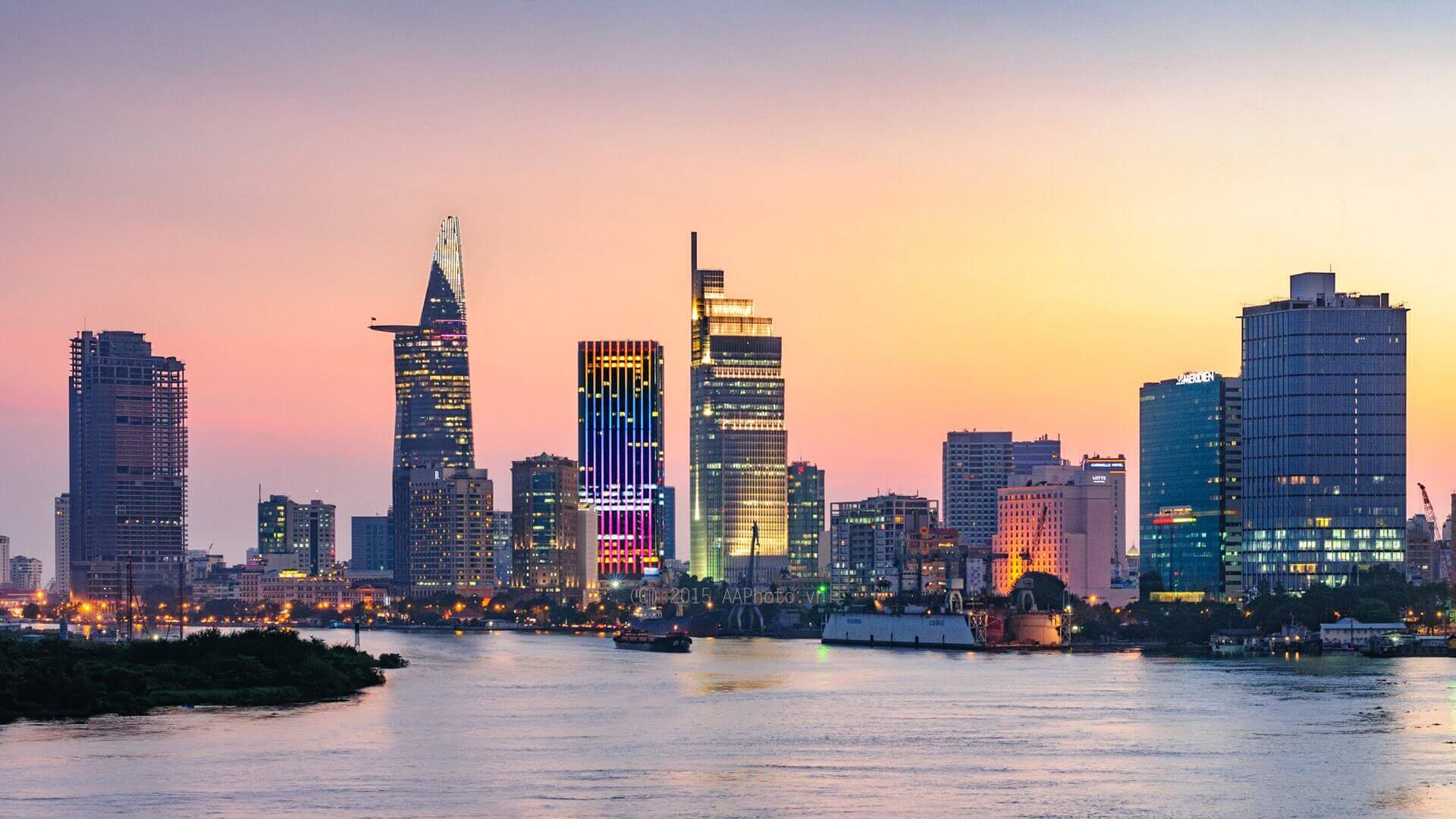Vietnam has made rapid progress over the past several decades, average GDP growth rates exceeding 7% all throughout the 1990s and 2000s.
The country remains one of Asia’s more promising markets as it opens to foreign investment – and buying property is arguably the best way to gain from Vietnam’s economic rise as a whole.
Vietnam has especially become competitive in its industrial sector. China is falling in popularity among global companies that increasingly prefer building factories in Southeast Asia.
This is probably caused by rising costs, more regulations, weaker growth, and a strong “home-bias” in the Chinese market. A looming trade war with the United States also certainly doesn’t help problems in Asia’s biggest economy.
Whatever the cause might be, East Asia is experiencing a downturn while Southeast Asia is on the rise.
As such, many investors are looking at Vietnam – Southeast Asia’s third most populous country and one of the fastest growing in the region. But foreigners have, at least up until recently, had few options when investing in Vietnam.
Lack of investment variety in Vietnam is quickly changing though. During the summer of 2015, the government relaxed property ownership rules for foreign investors.
Anyone with either a 3-month tourist or residence visa may now own land on a renewable, 50-year lease. Foreign companies have even fewer restrictions when buying a property. It’s not quite that simple and there are additional rules, discussed further below, that you should consider.
However, there’s little doubt Vietnam is going in the right direction and making it way easier to invest here as a foreign buyer.
Places like Cambodia and Thailand make purchasing property as a foreigner less difficult. With that said, the Vietnam government has made clear which way they’re moving towards by lifting restrictions on foreign ownership of both companies and real estate.
Until things are easier for investors, there are still countless ways to get your feet wet and start investing in Vietnam property. It’s definitely bureaucratic, but once you have figured everything out it’s possible to (at least de-facto) own apartments and houses alike in Vietnam.

Ho Chi Minh City often referred to as Saigon by the locals, are Vietnam’s largest city and one of Asia’s fastest-growing.
There are lots of reasons to invest in Vietnam real estate right now rather than waiting until it’s more straightforward – apart from the fact that entry barriers are keeping asset valuations low at the moment.
First off, demographics are in Vietnam’s favor. While nearby countries such as China and Thailand are about to suffer from population decline, analysts predict Vietnam will grow from its current population of around 95 million today to almost 120 million by 2040.
Rapid urbanization should keep driving up real estate prices in the center of all major cities in Vietnam.
Second, Vietnam is one of the fastest growing nations in the world with its economy expanding by 7% in 2018. Future trends still remain positive as the government continues making it easier to conduct business.
Pioneers reap the greatest rewards. Vietnam is not easy or straightforward to buy property in, although that isn’t necessarily a bad thing since entry barriers have kept values fair.
Can Foreigners Buy Vietnam Real Estate?
In a word, yes. But it’s more complicated than that. Vietnam’s foreign property ownership laws limit the maximum number of foreign owners in a neighborhood. Freehold ownership is also not permitted.
For starters, land may only be leased in Vietnam. Whether you’re a local or a foreigner, all land plots are collectively owned by the state and can only be leased on a 70-year basis. It’s possible to own houses and structures. Just not the land they’re are built on.
With that said, you have an option to extend a lease in Vietnam once it expires. Barely anyone thinks the government will decline those wishing to renew their leases – real estate ownership in Vietnam will probably be easier in 50 years.
The other two restrictions are that foreign buyers may only own up to 30% of units in a single condo building. Furthermore, only 250 houses in a specific administrative ward can be foreign-owned. Neither of this limitation apply to overseas Vietnamese.
Obviously, both those rules are a greater concern in denser cities like Hanoi and Saigon when compared to elsewhere in Vietnam.
These laws are still rather new and Vietnam used to have even more restrictions. Until foreign ownership rules were liberalized back in July of 2015, you needed to have a Vietnam residence visa before buying property.
I mention this not to dwell on the past but to show the positive direction Vietnam is moving in, albeit slowly.
How Much Are Real Estate Taxes in Vietnam?
Fees are payable by the buyer when transferring property in Vietnam. There’s a 5% VAT (Value Added Tax) in addition to a registration fee worth 0.05% of your asset’s value.
If any profit is made upon selling property, the seller also must pay a small capital gains tax of 0.15% on the realized profit.
Rental income is paid at Vietnam’s normal flat income tax rate of 20% as well. However, if you ask local landlords, you’ll find that hardly anyone ever bothers to pay it.
Technically, there is also a land tax paid at 0.03% to 0.15% of its total value with the exact rate depending on the land’s size. This tax is again rarely payable or enforced in practice.
Don’t misunderstand me: that’s not a suggestion that you shouldn’t pay rental income or land taxes in Vietnam. It’s just a statement of reality. Few locals pay these assessments, and usually, the government leaves them alone.
Is Buying Property in Vietnam Safe?
Vietnam has a well-documented land registry and the government keeps good track of plots in all major cities. Unless you’re buying land in a very rural area, you’re unlikely to have any issues regarding clarity or lack of property rights.
Problems when buying Vietnam real estate will come from sellers rather than the government. Similar to most other countries in Southeast Asia, it’s always worth looking into the reputation of a property developer before you purchase from them.
There are some well-established companies with lots of projects to show. But if you buy from a small developer with few (if any) complete buildings, you will have a bigger risk of construction either not moving ahead on schedule… or stopping altogether in the worst case.
Whether you’re buying from a reseller or a property developer, it’s always important to get an inspection done. Sellers are known to hide structural problems and other issues such as water damage. Make sure you understand your rights and know exactly what you’re purchasing.
[content_block id=4039 slug=posts-footer]





